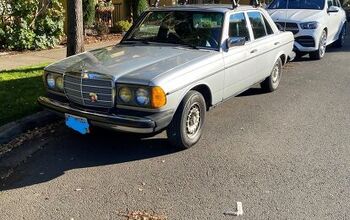Ghosts Are Real, and They're Sitting on Dealer Lots

When an automaker posts its sales figures at the end of the month, how many vehicles actually left the dealer lot?
Not all of them, according to a top BMW executive, who admitted that his company and others “punch” up sales numbers to boost their standing, according to Automotive News.
Punching cars is “not an ideal practice,” but it’s a reality in the industry, BMW of North America CEO Ludwig Willisch said on March 22.
The issue of punching arose from last year’s close four-way battle for the top luxury automaker spot in the U.S., a battle BMW won — on paper, at least.
Recording 346,023 U.S. sales in 2015, BMW placed first in the race and Lexus third, but when actual vehicle registrations were tallied, Lexus came out on top.
Numbers gathered by IHS Automotive/Polk showed a gap of 10,764 vehicles between BMW’s sales and registration figures, the largest of the top three luxury automakers.
Like an army of Caspers, those ghostly Bimmers existed in an ethereal realm of non-existence, at least until a lucky buyer noticed a great deal on a same-model-year vehicle.
At the same New York meeting, Jaguar Land Rover North America CEO Joe Eberhardt said sales need to be spread throughout the month in order to combat the need to punch.

More by Steph Willems


































Comments
Join the conversation
This practice of dealers registering cars and then selling as pre-owned has been happening in the UK for many years. Over here, we call it "pre-reg" and virtually all makes and dealers do it. Back in 2005 my father bought a pre-reg Ford that was just 2 months old and with 100 miles on the clock. He saved £4000 off list price. Last year I bought a pre-reg Lexus at 1 month old and with less than 50 miles. I saved £7000! (interestingly the Lexus dealer described the car as an "ex-demo" ) I don't see the problem with it, other than it artificially swelling the manufacturers sales figures.
I worked for a pharmaceutical/personal products company that was fined big time by the federal government for pretty much the same sort of shenanigans. Perhaps the difference lay in what was reported to whom.
The local BMW here (one of the biggest I've read) had a modest selection in stock when I last purchased one. Years later, they now have a bunch of them tucked into a parking lot down the road behind a building, and another lot is being constructed. My guess is all inventories are going to rise fast in the coming months.
Heck, if this didn't exist, Infiniti wouldn't have sold any G25's at all.